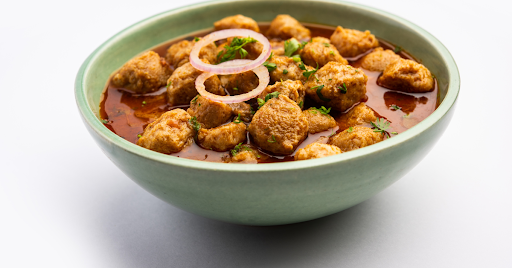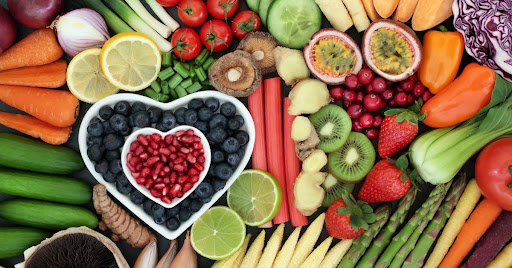The Importance of a Balanced Diet: Benefits, Tips, and Healthy Eating Practices
4 min read
By DocGenie , Published on - 05 December 2024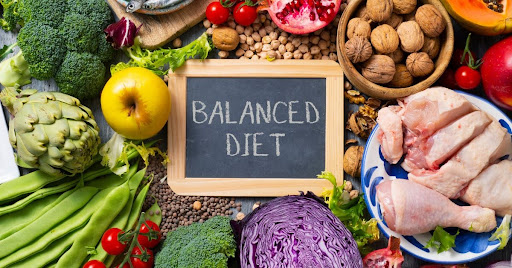
In an age where fast food and instant gratification dominate lifestyles, the concept of a balanced diet remains crucial for long-term health. A balanced diet is not about strict dietary limitations or depriving yourself of the foods you love; it's about feeling great, having more energy, improving your health, and boosting your mood. This blog will guide you through the fundamentals of a balanced diet, its numerous benefits, and actionable tips for incorporating healthy eating practices into your daily life.
What Is a Balanced Diet?
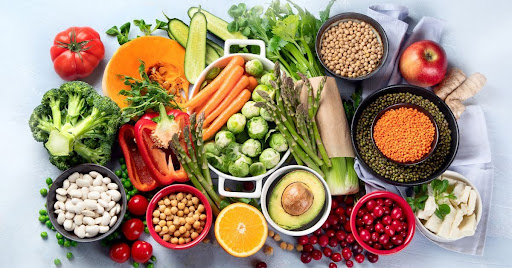 A balanced diet provides your body with all the essential nutrients it needs to function effectively. It includes a mix of:
A balanced diet provides your body with all the essential nutrients it needs to function effectively. It includes a mix of:- Carbohydrates – your body’s primary energy source
- Proteins – for muscle repair and immune support
- Fats – healthy fats support brain health and hormone production
- Vitamins and minerals – vital for metabolic processes
- Fiber and water – essential for digestion and detoxification Each food group plays a unique role, and the key is consuming them in appropriate proportions.
Why Is a Balanced Diet Important?
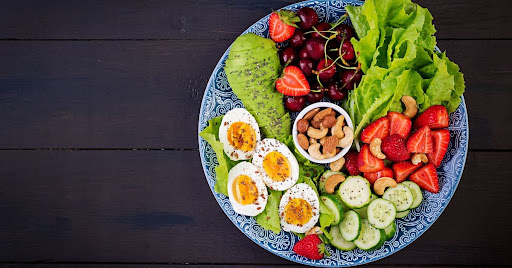 A well-rounded diet offers many health advantages. Here are the top reasons to make it a priority:
A well-rounded diet offers many health advantages. Here are the top reasons to make it a priority:- Supports Physical Health Consuming the right mix of nutrients helps maintain healthy body weight, supports muscle and bone strength, and reduces the risk of chronic diseases like diabetes, hypertension, and heart disease.
- Boosts Mental Wellbeing Nutrients such as omega-3 fatty acids, complex carbohydrates, and antioxidants are directly linked to brain function and emotional balance. Deficiencies in B-vitamins and iron, for instance, can lead to fatigue and mood disorders.
- Improves Immunity A healthy diet enhances your body’s defense system. Nutrients like vitamin C, vitamin D, zinc, and selenium are key to a stronger immune response.
- Promotes Better Digestion Fiber from fruits, vegetables, and whole grains supports a healthy gut, preventing constipation and reducing the risk of colorectal cancer.
- Increases Energy Levels Balanced meals stabilize blood sugar, preventing the energy crashes associated with sugar-laden foods.
Key Components of a Balanced Meal
To create a meal that supports your health goals, aim to include the following on your plate:| Food Group | Examples | Benefits |
|---|---|---|
| Proteins | Eggs, lentils, chicken, tofu | Builds muscle, repairs tissues |
| Carbohydrates | Brown rice, oats, quinoa | Provides sustained energy |
| Healthy fats | Olive oil, nuts, avocados | Supports brain health and absorption |
| Fruits & Veggies | Spinach, berries, carrots | High in fiber, vitamins, and antioxidants |
| Dairy/Alternatives | Yogurt, milk, almond milk | Source of calcium and vitamin D |
| Water | 6–8 glasses daily | Maintains hydration, supports metabolism |
Tips for Maintaining a Balanced Diet
Knowing what to eat is only part of the solution—here’s how you can make a healthy diet a sustainable habit:- Plan Your Meals Ahead
- Control Portion Sizes
- Limit Processed Foods
- Stay Hydrated
- Practice Mindful Eating
- Read Nutrition Labels
Meal planning helps you avoid impulse eating. Create a weekly menu and shopping list based on nutrient-rich recipes.
Even healthy foods can contribute to weight gain if consumed in excess. Use smaller plates and follow visual cues (like a palm-sized portion of protein).
Highly processed snacks are often high in sugar, sodium, and unhealthy fats. Choose whole foods whenever possible.
Sometimes, thirst is mistaken for hunger. Drinking enough water also helps with digestion and energy.
Eat slowly, savor your food, and avoid distractions like screens while eating. This improves digestion and helps control overeating.
Understanding what’s in your food helps you make informed choices and reduce intake of unhealthy ingredients.
Healthy Eating Habits to Incorporate
The following habits can help reinforce your commitment to a healthy lifestyle:- Start your day with a nutritious breakfast
- Include at least 5 servings of fruits and vegetables daily
- Choose whole grains over refined grains
- Snack on nuts, seeds, or fruits instead of chips
- Reduce sugar-sweetened beverages like soda and packaged juices
- Cook more meals at home to control ingredients and portions
Common Challenges and How to Overcome Them
- Lack of Time Solution: Prepare meals in batches on weekends and freeze them. Use quick, one-pot recipes during busy weekdays.
- Picky Eating Solution: Introduce new foods gradually and in fun ways—smoothies, veggie-loaded wraps, or colorful salads.
- Budget Constraints Solution:Buy seasonal produce, shop from local markets, and use cost-effective staples like beans and lentils.
The Balanced Diet in 10 Simple Points
- Eat a variety of foods from all groups
- Prioritize whole over processed foods
- Incorporate lean proteins in every meal
- Choose healthy fats over trans fats
- Stay hydrated throughout the day
- Eat fiber-rich foods for better digestion
- Limit sugar and salt intake
- Practice portion control
- Prepare meals mindfully and with fresh ingredients
- Avoid skipping meals—especially breakfast

